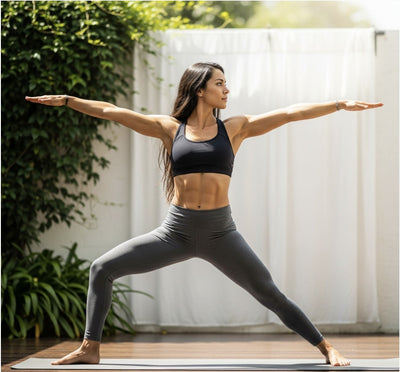
Yoga & Nutrition: Eating to Support Your Practice - 5to9style
Share
Yoga & Nutrition: Eating to Support Your Practice
Yoga may focus on movement and breath, but what you eat can dramatically affect how you feel on the mat. The right foods can boost your energy, help your muscles recover, and even make deep stretches feel easier. The wrong foods? They can leave you sluggish and bloated, making every pose a struggle.
Here’s how to eat to support your yoga practice—without overcomplicating it.
What to Eat Before Yoga
You don’t want a heavy meal weighing you down, but you also don’t want to run on empty. Try:
-
Light carbs: A banana, a slice of whole grain toast, or a handful of berries.
-
Small protein boost: A spoon of nut butter or a few almonds for staying power.
-
Hydration: Drink water or coconut water to stay energized.
Avoid greasy or heavy foods, which can make twists and inversions uncomfortable.
Post-Yoga Recovery Foods
After class, your body needs nutrients to repair and restore:
- Protein: Eggs, Greek yogurt, or plant-based protein for muscle recovery.
- Complex carbs: Quinoa, sweet potatoes, or oats to replenish energy.
- Anti-inflammatory foods: Berries, leafy greens, and turmeric to ease soreness.
How to Build a Yoga-Friendly Diet
- Eat whole foods: Skip processed snacks and stick to natural energy sources.
- Stay hydrated: Proper hydration improves flexibility and focus.
- Mindful eating: Take time to chew, slow down, and enjoy your meals.
Pair your nutrition plan with a comfortable yoga-friendly outfit (like a breathable tank or a soft hoodie from 5to9style) so you can flow through your day feeling good inside and out.
Final Thoughts
Eating for yoga doesn’t have to be complicated. Focus on real, nutrient-rich foods, hydrate, and listen to your body. A balanced approach will help you feel light, energized, and ready for any flow.








